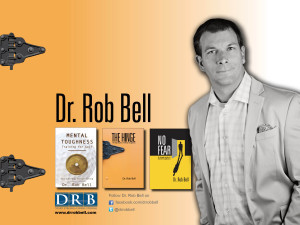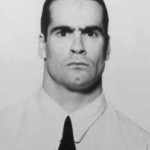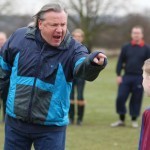Rob Bell's Blog, page 29
April 24, 2015
5 ways to help your kid with Mental Toughness

AP Photo/Gareth Fuller,
“Perfect little Rachel ” That’s how her parents described and introduced their child, a high-school 2nd baseman. That’s pretty high expectations, and I was curious how long they had been calling her that. She was not mentally tough and it had little to do with her.
1. Call them a competitor:
How do you introduce and describe your kids? “There goes our little winner” or “Here comes Johnny, our star goalie.” Be careful about using descriptors that emphasize only part of our identity. We are not always winners, and we certainly don’t always lose. We are also only an athlete at certain times as well. BUT, we can compete in everything we do. We can compete in grades, paying attention, and playing sports. Emphasize that competing means against yourself, not anyone else.
2. Love your partner:
It’s easier for me to be a good father than a good husband. I don’t like that part of me, but I can just love on my kids as much as I want. With my wife, I have listen, reflect, emphasize, budget, discipline, strategize, and co-parent. It’s part of being in a relationship, it takes more work. However, the most important relationships take place within the four walls of our home. How we interact, show affection, and disagree with our partner, models how our kids will see the outside world. Remember, whatever they see as a child is “normal,” you get to define it.
3. Allow them to take ownership:
There is a big difference between ownership and buy-in. Buy-in means its someone else’s idea. Ownership is more powerful. If competitiors take ownership of their game, they will then assume ownership within the team. Before each season, define your role and ask them what feedback they want from you…Allow them to pack their own bags, schedule their additional practice and free-time. Basically after the initial conversation, don’t intervene unless their safety or health is concerned.
4. Don’t call, email, or text:
I had an awful bachelor party. I even told my wife how disappointing it was, (it was even in Vegas). She actually emailed the guys in my party after the fact. Ouch, I was embarrassed. She fought my own battle…Kids develop mental toughness by overcoming the adversity they face. They need to be able to communicate with coach and other players, but if we don’t allow them to use their own voice, then they won’t face their fear and fear wins. Most coach-athlete problems are a result of a lack of communication anyway.
5. Don’t talk about other players, coach, or refs:
Sports is about winning, but it is also about losing and getting better. Losing sucks, but it isn’t fatal. We help build mental toughness by allowing them to experience the setbacks and the adversity. If we try to remove their ownership by blaming anything else other than their play, then we have actually given them an out, an excuse. If there’s an out, they will use it and learn to use it. Bad calls, bad plays, and poor execution happen, but what’s the lesson when we blame, it wasn’t you, it was something else? Well, when they win, it has to be something else as well, can’t have it both ways.
My great uncle plays cards all the time, he says it in jest, “when I win, it’s a game of skill, if I lose, it’s a game of luck.”
 Dr. Rob Bell is a Sport Psychology coach. DRB & Associates based in Indianapolis works with professional athletes & corporate athletes, coaches, and teams building their Mental Toughness. His 2nd book is titled
The Hinge: The Importance of Mental Toughness
. Follow on twitter
@drrobbell
or contact
drrobbell@drrobbell.com
Dr. Rob Bell is a Sport Psychology coach. DRB & Associates based in Indianapolis works with professional athletes & corporate athletes, coaches, and teams building their Mental Toughness. His 2nd book is titled
The Hinge: The Importance of Mental Toughness
. Follow on twitter
@drrobbell
or contact
drrobbell@drrobbell.com
Check out the new film & e-book, NO FEAR: A simple guide to mental toughness .
April 17, 2015
Fix it please, Now!

photo by: bschwehn
I was in the office of a DI basketball team this previous fall. An outstanding group of staff and coaches because they approach the game the right way. On this particular morning, head coach and his two assistants were going over at length the pick & roll. My first thought was “great!” I get to learn more about the pick & roll, the one play that demands team buy-in.
After five minutes, I was no longer involved with defending the pick & roll. I was now looking at the Mona Lisa from the side. I had zero clue what was going on. This level of explanation and description between the three coaches went six levels deep and so fast! I understood the 1st two levels, but now I felt like I was learning Spanish trying to follow along a conversation between three very fluid speakers. I felt stupid.
In high-school math, the teacher would go through the entire problem on the board. Repetition, repetition, repetition…The light always went on in class and I left thinking, “I’ve got it, I understand.” That lasted until I got home from practice and school, opened up the book to do homework and somewhere in the last few hours, I had completely forgotten everything the teacher did. My notes always seemed to resemble a mixture of math and hieroglyphics.
Not knowing the solution is painful, and uncomfortable. Its like wading our feet in a murky pond. However, the best way to improve is to find a way, figure it out, and make adjustments. True satisfaction and mental toughness result from overcoming the struggle.
Unfortunately, what’s changed is that we no longer have to “figure it out.” We don’t have to remain uncomfortable or find a way. Nowadays, when athletes struggle, there is someone else to provide the answer sheet. We can just look it up or ask someone to fix it for us. If we don’t like the answer, then we can ask someone else.
The system has perpetuated the issue. Since we’ve been providing the answers, why are we so shocked when people expect entitlement? It occurred every step along the path. We removed the learning experience of failing and in doing so actually cheapened the joy of winning.
 Dr. Rob Bell is a Sport Psychology coach. DRB & Associates based in Indianapolis works with professional athletes & corporate athletes, coaches, and teams building their Mental Toughness. His 2nd book is titled
The Hinge: The Importance of Mental Toughness
. Follow on twitter
@drrobbell
or contact
drrobbell@drrobbell.com
Dr. Rob Bell is a Sport Psychology coach. DRB & Associates based in Indianapolis works with professional athletes & corporate athletes, coaches, and teams building their Mental Toughness. His 2nd book is titled
The Hinge: The Importance of Mental Toughness
. Follow on twitter
@drrobbell
or contact
drrobbell@drrobbell.com
Check out the new film & e-book, NO FEAR: A simple guide to mental toughness .
April 10, 2015
Sport Parents: The Ultimate Critic
 As a parent of an athlete, there is really only one responsibility, support your son or daughter. Problem is many parents get the tonic of support mixed up with liquor of critiquing the game or practice. Tonic is fine, Liquor, never sicker…I wonder do kids lose the passion for sports or do their parents kill that passion with all the expectations, criticisms, and post-game rants?
As a parent of an athlete, there is really only one responsibility, support your son or daughter. Problem is many parents get the tonic of support mixed up with liquor of critiquing the game or practice. Tonic is fine, Liquor, never sicker…I wonder do kids lose the passion for sports or do their parents kill that passion with all the expectations, criticisms, and post-game rants?
I watch it after every game. Parents come over and immediately start talking about how they could have done this better, should have made this play, or performed a certain skill. I have made a conscious effort after each performance to do two things with my own kids.
1. Compliment their effort and tell them I love watching them play.
Believe me it is not always easy, but after having a conversation with my daughter, I will continue to stick to two things post-game. After listening and I watched a couple families do their thing after the game was over and tell their kid about not fouling, how to pass, when to dribble, proper shooting technique, moving their feet faster on defense, etc. I thought, holy crap, this is their first real game of basketball EVER! One parent went so far as to take his daughter out on the court and give her a lesson in boxing out the opponent to get the rebound.
2. ASK your child on how they want to be coached:
I asked my daughter if she liked it when I have critiqued her play in the past. Again, she said, “No.” It felt like a fist to my face!
So, I changed… I merely referred to a couple of loose balls she dove for on the ground and how she hustled up and down the court each time on defense. I never once talked about something she could have done better. I will leave that up to the coaches. I did tell her if she ever wants my opinion about anything I will give it to her, but she has to ask. When the student is ready, the teacher will appear.
 Coach Justin Dehmer holds Back-to-Back-to-Back State Championships and 3x Coach of the Year 2010, 2011, 2012. National Record 87 Game Winning Streak in 2011 ended in 2012 at 88. Contact www.1PitchWarrior.com Twitter @1PitchWarrior coachd@1pitchwarrior.com
Coach Justin Dehmer holds Back-to-Back-to-Back State Championships and 3x Coach of the Year 2010, 2011, 2012. National Record 87 Game Winning Streak in 2011 ended in 2012 at 88. Contact www.1PitchWarrior.com Twitter @1PitchWarrior coachd@1pitchwarrior.com
March 27, 2015
3 things KILLING your Mental Toughness
Believe me, you’re tougher than you think. The proof is simple, you’re not dead. I should have died at least twice in my life.
We can’t connect the dots in our lives moving forward, we can only connect them looking backwards, which means we don’t know how things are going to turn out. In our lives there will be moments that make all the difference. These Hinge moments that will connect who we are now to who we become. We need to be ready and we need to be confident. Confidence is the foundation of mental toughness. When I lose confidence, I isolate, and only mushrooms and mold can grow in the dark.
Here are the three things killing your mental toughness.
1) Expectations- Growing up, my expectations were simple, Be The Best. Except, I added two words to that mantra, at everything. I wanted to be the fastest, smartest, funniest, best looking, etc. Heck, I wasn’t any of those things even in my own class. I can’t even be the best Rob Bell, A pastor holds that title.
Tiger Woods used to say, “ I expect to win the tournament.” Expectations are not confidence, but we confuse the two. Expectations and confidence are just cousins. We can have confidence in the things we can control, but we hold no control over how we want things to work out. Expectations are out of our control and they turn into tomorrow’s resentments. Continuing to have the highest of expectations means we will struggle when we have to adjust and trouble-shoot. We basically only control, our effort, our attitude, our confidence, and how well we let of mistakes and re-focus.
2) Doubts- I just thought that the very best didn’t have doubts. Whereas, I bumped my head continually on self-doubt. It was only after I spoke with Olympic Gold Medalists that they confessed they too had doubts. Things go wrong and bad outcomes happen, but these champions believed in their preparation and more importantly they believed in themselves. Fear grows on our doubts. I hate listening to the doubt inside my head, so I have to recognize it. When things are bad, remember it’s just temporary. Make adjustments, breathe, let it go and if that doesn’t work, do it again.
3) Drugs, Alcohol, Sex- The better we get, the more important mental toughness is off the field than on the field. James Banks was the best college football player I saw live (outside of Randy Moss). This James Banks later stated after getting kicked off of Tennessee’s football team, “All because I wanted to have a good time.” Examine the BEST in our area who didn’t make it, chances are, one of these three were the culprit. All three of these things derailed my short baseball career in college. Off the field issues can kill our mental toughness.
 Dr. Rob Bell is a Sport Psychology coach. DRB & Associates based in Indianapolis works with professional athletes & corporate athletes, coaches, and teams building their Mental Toughness. His 2nd book is titled
The Hinge: The Importance of Mental Toughness
. Follow on twitter
@drrobbell
or contact
drrobbell@drrobbell.com
Dr. Rob Bell is a Sport Psychology coach. DRB & Associates based in Indianapolis works with professional athletes & corporate athletes, coaches, and teams building their Mental Toughness. His 2nd book is titled
The Hinge: The Importance of Mental Toughness
. Follow on twitter
@drrobbell
or contact
drrobbell@drrobbell.com
Check out the new film & e-book, NO FEAR: A simple guide to mental toughness .
March 20, 2015
SPORTS PARENTS: 6 ways you’re doing it wrong…
March 13, 2015
5 ways to dominate that FEAR!
 Fear takes us further than we want to go and keeps us longer than we want to stay. Fear underlies almost all emotions, disappointment, sadness, motivation, anger, even fear of getting angry. Because fear dominates our lives, this list is 5 ways to dominate that FEAR. It was the impetus to produce my latest film & eBook NO FEAR: A Simple Guide to Mental Toughness.
Fear takes us further than we want to go and keeps us longer than we want to stay. Fear underlies almost all emotions, disappointment, sadness, motivation, anger, even fear of getting angry. Because fear dominates our lives, this list is 5 ways to dominate that FEAR. It was the impetus to produce my latest film & eBook NO FEAR: A Simple Guide to Mental Toughness.
1) KNOW THE SOURCE- If we can’t identify where the fear is coming from or what it is about, how can we possibly begin to challenge it? One way or another, fear stems from the belief that “it” won’t work out how I want it to. Romans 8:1 states, there is no condemnation to those in Christ Jesus. If you believe in that verse, then any thoughts of fear, self-ridicule, or not being good enough is certainly not from God, the source is coming from someplace else. Hint: it’s not ourselves
2) IT FOCUSES ON THE FUTURE OR THE PAST- Think of fear as a person, not an emotion. He will try to show us why we should be afraid! That individual will direct our attention to the outcome, the result, and something out of our control. Fear wants us to become obsessed with some event or person in the future, a year, a month, even a day. It also wants us to look backwards not at our successes, but our short-comings and our failures. Fear losses it’s grip when we stay in the now.
3) THERE IS ALWAYS SOME TRUTH TO IT- Fear is not all or nothing. Yes, your son or daughter may get injured, not play DI in college, or get in an accident. We may fail. If we take a game winning shot and miss, it will hurt. If we attempt a change in our business, we may get stuck! All truths. But fear does not stop there. It keeps going and going; fear catastrophizes. It takes us down a road of imagining the worst-case scenario. Imagining that if we try and fail, well not ONLY will it suck, but also my friends will think I am a failure and I will lose my job. The solution is to rank the fear from 1-10, if it’s higher than a 6, go to the next step.
4) SHARE THE FEAR- We keep our biggest fears to ourselves and when we do that, the fear can get legs. Most people share with their friends, hairdressers, or bartenders so why not share fears with them? They aren’t experts and won’t be able to provide quality solutions, but a problem shared becomes half a problem. Once we verbalize aloud and can hear our own voice, the fear actually diminishes instantly. Try it!
5) PRAY, AND IF THAT DOESN’T WORK, PRAY AGAIN - Mental toughness is not about doing it alone, it is about surrendering to the things out of our control. Having worked with many successful high achievers, I am convinced the biggest fear is simply not being good enough. The expectations and pressure to succeed often become overwhelming and even if it is good enough, it doesn’t last for very long. The fear returns, knocking on our door, saying, “remember me?” When we let go of the fear, it let’s go of us…
For more in-depth strategies on dominating that fear, check out my latest film & eBook. NO FEAR: A Simple Guide to Mental Toughness. I’d love to hear your suggestions
 Dr. Rob Bell is a Sport Psychology coach. DRB & Associates based in Indianapolis works with professional athletes & corporate athletes, coaches, and teams building their Mental Toughness. His 2nd book is titled
The Hinge: The Importance of Mental Toughness
. Follow on twitter
@drrobbell
or contact
drrobbell@drrobbell.com
Dr. Rob Bell is a Sport Psychology coach. DRB & Associates based in Indianapolis works with professional athletes & corporate athletes, coaches, and teams building their Mental Toughness. His 2nd book is titled
The Hinge: The Importance of Mental Toughness
. Follow on twitter
@drrobbell
or contact
drrobbell@drrobbell.com
Check out the new film & e-book, NO FEAR: A simple guide to mental toughness .
March 6, 2015
10 ways to forget about the outcome

Henry Rollins photo by NNDB.com
It is what is. It’s only uttered by people who experienced a setback or are just miserable. I’ve never heard it by someone holding up a trophy. Although, my goal is to have an athlete hold up a trophy and is so consumed by the process that they say, “hey, it is what it is.”
A focus on winning doesn’t lead to winning, a focus on the process does. However, our thoughts are often directed on the result and the outcome. When we do this, we welcome the ugly guest of FEAR into our game. Here’s 10 ways to forget about the outcome.
1) Talk to a teammate or competitor- Get outside of our own head, we are behind enemy lines. Andrew Luck actually congratulates guys who sack him!
2) TELL yourself what you’re going to do next!- don’t ask questions in competition, it only brings forth doubt.
3) Make the picture big- When I focus on going on vacation or that dinner date next week, I get happy. One of my players loved eating so much, he would talk about where we were going afterwards. Make the picture even bigger, we must know that it all works out, because it has so far.
4) Make the picture small again- Focus just on making one play, the next one!
5) Breathe- Breathe and look for the opportunity.
6) Rock, Paper, Scissors- If you’ve got a sport with some down time, play a quick game! It reduces the tension. check it out here…
7) Repeat your mantra- hopefully you have one… what refocuses you?
8) Think about your family- I get happy when I think about mine, but it also kicks in the drive.
9) Think about your behind- You know, your past successes. If all we had were good memories, how would you play?
10) Act as if- Before I take the stage or work with a team, I act as if I am Henry Rollins or Bobby Jones. How would someone better than me act?
 Dr. Rob Bell is a Sport Psychology coach. DRB & Associates based in Indianapolis works with professional athletes & corporate athletes, coaches, and teams building their Mental Toughness. His 2nd book is titled
The Hinge: The Importance of Mental Toughness
. Follow on twitter
@drrobbell
or contact
drrobbell@drrobbell.com
Dr. Rob Bell is a Sport Psychology coach. DRB & Associates based in Indianapolis works with professional athletes & corporate athletes, coaches, and teams building their Mental Toughness. His 2nd book is titled
The Hinge: The Importance of Mental Toughness
. Follow on twitter
@drrobbell
or contact
drrobbell@drrobbell.com
Check out the new film & e-book, NO FEAR: A simple guide to mental toughness .
February 20, 2015
Why coaching should be Intentionally Left Blank…
Every so often, when I receive an important document, there is always This Page Intentionally Left Blank. This is so because if a document had a printing issue, there might be serious consequences. More importantly, imagine all of the inquiries and anxiety from readers if they came across a blank page without it being intentional.
Coaching is basically the same way. Our team wants to know what pages are left intentionally blank. They want to know the expectations and our style! For instance, I’ve had successful athletes perform better when I’ve challenged them that, “They can’t do a task.” They declare “I’ll show you, and do it.” However, I don’t always like coaching that way and I have to communicate that.
One of the biggest frustrations of numerous coaches in business and athletics is that people struggle with trouble shooting, problem-solving, making adjustments, and thinking on their own. They are usually wonderful at doing what is expected, but not finding a way on their own…
So, we call timeout. We call timeout so often that people expect the timeout. They need the coaching session, the feedback, and told what to do. Can you imagine a coach NOT calling timeout during crucial moments now? One of the coolest things during the 1987 national championship game between Indiana and Syracuse was that the last :20 seconds of the game (before Keith Smart made the iconic last shot), was NO TIMEOUT was called by coach Knight. He prepared for it.
Coaching is coaxing, but the best coaching is knowing when NOT to coach. What pages need to be intentionally left blank? We leave pages intentionally blank by simply communicating how we coach and knowing how they want to be coached?
 Dr. Rob Bell is a Sport Psychology coach. DRB & Associates based in Indianapolis works with professional athletes & corporate athletes, coaches, and teams building their Mental Toughness. His 2nd book is titled
The Hinge: The Importance of Mental Toughness
. Follow on twitter
@drrobbell
or contact
drrobbell@drrobbell.com
Dr. Rob Bell is a Sport Psychology coach. DRB & Associates based in Indianapolis works with professional athletes & corporate athletes, coaches, and teams building their Mental Toughness. His 2nd book is titled
The Hinge: The Importance of Mental Toughness
. Follow on twitter
@drrobbell
or contact
drrobbell@drrobbell.com
Check out the new film & e-book, NO FEAR: A simple guide to mental toughness .
January 30, 2015
The suckiest answer you can get…
 We are having our annual SuperBowl party and sure enough I get a few online responses of Maybe. So, maybe eight (8) more people are coming to the party OR maybe not!
We are having our annual SuperBowl party and sure enough I get a few online responses of Maybe. So, maybe eight (8) more people are coming to the party OR maybe not!
Am I rejected for a better party, or what? Either scenario I play out sounds downright negative. Maybe sounds more like NO, but it isn’t. Maybe is cousins to I’ll think it over and let me get back to you.
The answer is worst than NO.
No is like a tearing off a bandaid, it stings, but we get over to it.
At an 8th grade dance, I finally got up enough nerve to ask this girl to dance. It was one of those, “I have the biggest crush on this girl” type of thing, so I devised the great plan to ask the girl at the dance! No pressure, no diamond.
I had heard up to that point in my life the cliché’ of “what’s the worst she could say?” “NO.” Now, NO would be painful and the fear of hearing that rejection is what caused all of the anxiety and stress. But I hadn’t even contemplated her response of “Oh wow, Let me get back to you.”
Maybe freezes us and places us in purgatory. I limped back to my side of the gym completely stuck. I wasn’t prepared for a maybe. At first I was actually excited, she didn’t reply “no,” but, the excitement soon turned into detest.
Did she really mean maybe, or did she actually mean no? My only recourse was to ask someone else, but how could I, because she said, MAYBE. She rejected me with a maybe and I learned early on that No isn’t the worst answer and I wouldn’t accept maybe’s or think it over’s any longer, until Evites over our Super Bowl party.
Don’t be the person who gives the answer of Maybe and certainly don’t accept the answer of Maybe.

 Dr. Rob Bell is a Sport Psychology coach. DRB & Associates based in Indianapolis works with professional athletes & corporate athletes, coaches, and teams building their Mental Toughness. His 2nd book is titled
The Hinge: The Importance of Mental Toughness
. Follow on twitter
@drrobbell
or contact
drrobbell@drrobbell.com
Dr. Rob Bell is a Sport Psychology coach. DRB & Associates based in Indianapolis works with professional athletes & corporate athletes, coaches, and teams building their Mental Toughness. His 2nd book is titled
The Hinge: The Importance of Mental Toughness
. Follow on twitter
@drrobbell
or contact
drrobbell@drrobbell.com
Check out the new film & e-book, NO FEAR: A simple guide to mental toughness
January 16, 2015
The 3rd Law of Goals…
The 3rd law? Newton’s 3rd Law of motion! “For every action, there is an equal and opposite reaction.” I realized how Newton’s 3rd law applies to the goal setting process recently while setting my BHAG for the year, to read 50 books. If we want to add a new behavior and make change in our life, there must also be a subtraction of the behavior(s) standing in our way. One cannot happen without the other.
“Newton’s Third Law” is important because this unawareness of ‘equal and opposite reactions’ causes goals to fail. We get so excited about our big goal for the year that we don’t recognize the full impact that the process of achieving this goal will have on our life. Typically when we do recognize the impact, it becomes an uncomfortable decision in the moment between the old habit(s) and the new one we are pursuing. We have to plan for that decision upfront, so are ready for that moment of ‘opposite reaction’.
The Third Law! We want to lose weight; we quit eating fast food and start cooking our meals. We want to run a marathon; we cut back on our time playing basketball or weight training and begin a running regime. We want to read 50 books; so I no longer have cable, deleted fun time-wasting apps on my phone, and I have a book with me wherever I go. When I am in the car, I’ve even swapped the radio out for audiobooks (this counts as reading too!). For me and all of us, it boils down to how bad do you want to achieve your goal?
There will be some kick-back and setbacks along the way toward any goal, this is also part of the 3rd law. Equal and opposite reaction. Realizing the 3rd law will help you find other ways in which your goal may have a larger than anticipated positive impact on your life.
 Will Drumright, M.S. is an associate of DRB & associates. He works with athletes, coaches, and teams helping build and enhance their mental toughness. He can be reached at wcdrumright@gmail.com or follow on @wcdrummy15
Will Drumright, M.S. is an associate of DRB & associates. He works with athletes, coaches, and teams helping build and enhance their mental toughness. He can be reached at wcdrumright@gmail.com or follow on @wcdrummy15

 NO FEAR: A simple guide to mental toughness
NO FEAR: A simple guide to mental toughness 



